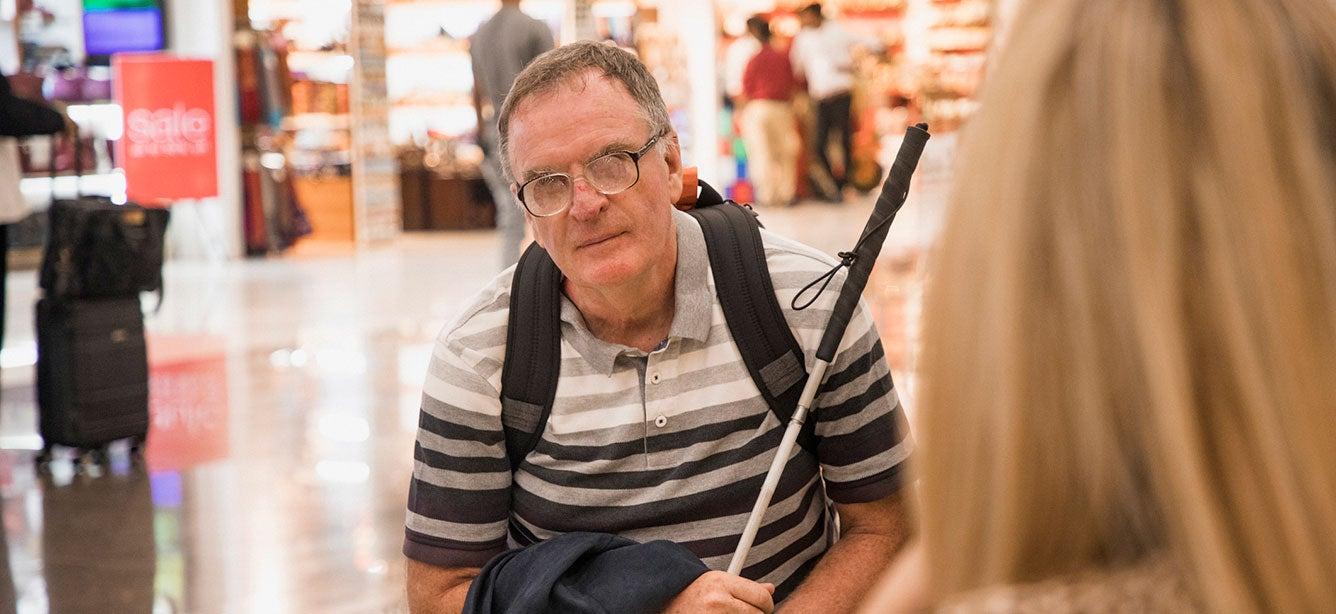Medicare Should Cover Vision Services and Assistive Devices
3 min read

Can Medicare help those with low vision to use their sight?
As a person with low vision, I am grateful to be able to afford the appropriate evaluations, the devices that enable me to read standard print up close, and the telescopic devices that let me see at a distance; that enable me to use my computer, and also to drive with a bioptic telescopic system. However, Medicare—insurer to almost 60 million older adults and people with disabilities—currently does not cover such low vision devices or certain low vision services to improve the functional use of vision. It is time for Medicare to cover this care for those with vision loss!
What is low vision, and what types of devices can be helpful?
Low vision refers to those who were born with poor vision or experience vision loss during life. Their vision is not correctable with glasses or contacts. According to the National Institutes of Health, there are approximately 4 million people in the US with low vision, and by 2029, that number is expected to double as the population ages.
I am not speaking of eyeglasses or sunglasses available in a typical drug store. Rather, these are devices specifically designed for people with low vision. They include such devices as low light transmission lenses for those who have photophobia or extreme sensitivity to light, electronic devices that will enlarge or read aloud to a person, and portable video magnifiers. Medicare does not cover these devices. Some people with low vision also need white canes to move about safely and to know if there is a curb, a small object, or stairs ahead of them.
Shockingly, Medicare doesn't even cover white canes for people who are blind.
Medicare has a history of paying for medical devices such as wheelchairs and crutches for those with mobility disabilities such as spinal cord injuries. These enable people with physical limitations to perform daily activities. So, why doesn’t Medicare cover low vision devices that enable a person who is visually impaired to live as independently as possible, see standard print, or to move about safely?
If Medicare covers rehabilitation services provided by physical therapists, why doesn’t Medicare cover vision rehabilitation services provided by low vision therapists, vision rehabilitation therapists, or orientation and mobility specialists?
Why is training as important as devices for helping people with low vision?
Not only is a person’s ability to function impacted when they don’t have access to critical devices and services, but society must pay the costs associated with a person who remains dependent due to their visual impairments.
I know older adults with vision impairments who have received devices, but there was no one to teach them how to use an optical device or a white cane. Without appropriate services and training, these devices can be outright dangerous. Some have stopped driving because they don’t know they may qualify for a low vision license with the right device. Many people move into senior residences and nursing homes because they can’t get the services and devices they need to live independently in their homes and communities.
Speak out for Medicare coverage
Isn’t it time that Medicare addresses the mobility and functional needs of individuals with visual disabilities? These devices and services will not restore normal vision but for those who can benefit from receiving evaluations, devices, and instruction in their use, it is very possible to improve a person’s functional use of their available vision.
From reading print on a measuring cup to working on my computer, from driving to the grocery store to being able to see signs in a restaurant, I would not be as independent if I did not have access to low vision devices and services.
I have the gift of sight, and I choose to remain independent by using the vision I have.
If you care about or know someone with vision impairments who would benefit from low vision devices and vision rehabilitation services provided by vision impairment specialists, please ask for Medicare to cover these devices and services.
